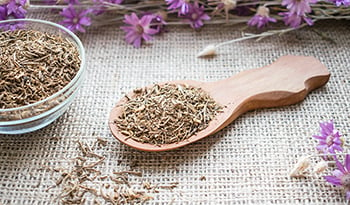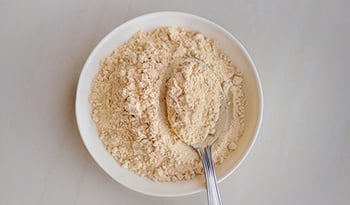Rhodiola Rosea Benefits—Anti-Aging, Energy, Brain Function, and More
DISCLAIMER:This blog does not intend to provide diagnosis...
- In this article:
- Many Bioactive Compounds
- Increase and Maintain Energy—Reduce Fatigue
- Get Smarter—Naturally
- Aging in Women—Menopausal Changes
- Aging in Men—Male Menopause (Andropause) Changes
- Improve Mood
- Attention Deficit Disorder
- High Altitudes Sickness
- Jet Lag
- Fertility
- Counteracting Prescription Medication Side Effects
- How to Optimize Benefits and Minimize Side Effects of Rhodiola Rosea
- Getting the Most Out of Rhodiola Rosea
- Rhodiola rosea Side Effects and Precautions
- Herb-Drug Interactions
- What Dose of Rhodiola Rosea Is Most Effective?

Rhodiola Rosea (Arctic Root, Rose Root, Golden Root, and Kingly Root) is the most powerful and versatile of an elite class of medicinal herbs called adaptogens for their effects on our ability to withstand a wide range of stressors—physical, psychological, toxic, chemical, infectious, neoplastic (cancerous), aging, and others.
R. Rosea grows wild at high altitudes between 8000 and 10,000 feet in the mountains of Siberia, the Republic of Georgia, and Scandinavia. For centuries the people living at those altitudes harvested its roots and used them to survive the harsh conditions. The location of these plants was kept secret. The roots were traded for food and other goods. Chinese emperors sent expeditions to bring back the precious roots which were known as Golden Root or Kingly Root. Extracts were used to treat infections and to improve energy, brain function, physical strength, fertility, and sexual function.
Today, due to the rising demand for adaptogenic herbs, wild R. Rosea is a protected species and it is widely cultivated in Scandinavia and Eastern Europe. Although not as potent as wild R. Rosea, when carefully grown and properly extracted, the cultivated plants can be used to produce effective supplements. The best quality products can be identified by following the writings of phytomedicine experts or by finding brands and trademarks that have been proven effective in published research studies.
Marker compounds have been used to assure that products contain true R. Rosea without adulterants. Rosavins, salidroside (rhodioloside), and tyrosol have been used as active marker compounds in standardized extracts. Unfortunately, the standardization system is not foolproof. It is now possible for companies to synthesize marker compounds and add them to batches of herbal extracts to pass standardization requirements.
Many Bioactive Compounds
People often ask how a single herb could have so many different therapeutic effects. The answer is simple. The roots of R. Rosea contained dozens of bioactive compounds that have individual and synergistic (working together) actions, for example, antioxidant, anti-fatigue, or antidepressant. Genomic studies show that a single dose of Rhodiola Rosea extract could affect the activity of more than 800 different genes. Here’s a list of ways to tap into the potential benefits of this adaptogen.
Increase and Maintain Energy—Reduce Fatigue
Increased energy is one of the first effects that people notice when they start taking R. Rosea. Unlike synthetic stimulant medications, R. Rosea produces a gradual rise in energy that is sustained for about 8 hours and gradually declines. Consequently, it does not cause addiction or withdrawal symptoms.
In general, R. Rosea increases the ability of cells to produce high-energy molecules. The result is that many kinds of cells—muscle cells, neurons, and others—have the energy supplies needed to continue functioning well for longer periods of time. In addition, they have more energy to maintain their cellular repair mechanisms. Furthermore, R. Rosea protects cells against oxidative damage, toxins, excess cold or heat, infections, low oxygen levels, and other forms of stress.
R. Rosea can help reduce fatigue from many different causes, including stress, overwork, medical illnesses, sleep deprivation, and aging.
Get Smarter—Naturally
Many studies have shown that Rhodiola Rosea can improve cognitive function, memory, and mental performance, particularly under stressful conditions. For example, in randomized controlled studies (RCTs) people given R. Rosea made fewer mistakes than those given placebo. Furthermore, the longer they were tested over many hours, the difference in performance became even greater, meaning that the herb enabled people to maintain a higher level of performance without getting mentally exhausted for up to 8 hours.
Aging in Women—Menopausal Changes
In clinical practice we find R. Rosea to be especially beneficial for women experiencing “brain fog” during and after menopause. This phase of life brings multiple stressors as women cope with work demands, family responsibilities, aging parents, and the numerous health issues that affect them and their loved ones. These stresses tend to increase at the time of life when naturally a woman’s energy level tends to decrease. When the demands of life exceed our energy reserves, conditions are ripe for us to become tired, irritable, and mildly depressed. To make matters worse, as we age it becomes more difficult to multitask and keep track of details. We expect ourselves to manage everything without making mistakes. Consequently, when we find that we can no longer do everything to our own standards, disappointment, insecurity, and low self-esteem can set in. This also takes a toll on our relationships.
Menopause can also be a time when we take stock of our situation and our health. It can provide the impetus for us to make the lifestyle changes that will help us live longer, healthier, happier lives. Of course, Rhodiola is not a panacea, but it can substantially help by improving energy, mental focus, and mood. An interesting study of depressed women found that Rhodiola Rosea not only improved mood, it also improved self-esteem.
Aging in Men—Male Menopause (Andropause) Changes
Male menopause can begin as early as the age of 35 with an average onset of age 44. It can manifest in hormonal, physical, psychological, interpersonal, sexual, social and spiritual changes. The decline in testosterone levels, libido, fertility, energy, mood, self-esteem, physical strength, and cognitive functioning contribute to these effects. These changes can also occur just when men are advancing their careers, assuming more responsibilities, and experiencing more demands on their time and energy. This can also be the time when men have their first encounters with diagnoses such as high cholesterol, high blood pressure, chest pain, or prostatic enlargement. This is a lot to deal with. R. Rosea can improve resiliency, confidence, work productivity, and athletic performance. Studies of the ADAPT formula, containing R. Rosea, Schizandra Chinensis and Eleutherococcus senticosus, have shown significant improvements in physical endurance and performance.
Improve Mood
R. Rosea can be used to treat mild to moderate depression, especially the type of depression in which the person tends to be tired and sluggish. In addition, it can be used as an adjunct to improve the response to prescription antidepressants. Only about 30% of people given prescription antidepressants achieve full remission. The majority, who have only partial improvement, may continue to suffer from residual symptoms. In many cases, adding Rhodiola Rosea can be beneficial.
Attention Deficit Disorder
Because Rhodiola improves mental focus, it can be helpful for some people with Attention Deficit Disorder with or without Hyperactivity (ADHD). For individuals who have mild ADHD or who cannot tolerate prescription stimulants, Rhodiola is an option. Also, for those who use prescription stimulants but cannot take high enough doses to fully control symptoms, the addition of Rhodiola can be helpful.
High Altitudes Sickness
Rhodiola Rosea has been used for centuries by people living at high altitudes to maintain their strength and endurance. Studies show that it improves the ability of animals to tolerate low oxygen conditions. In our clinical work, we find that people traveling to high altitudes can prevent symptoms of high-altitude sickness by taking Rhodiola prior to and during their trip.
Jet Lag
Traveling across time zones many people experience jet lag. Taking Rhodiola Rosea on the morning of arrival and for the next few days can reduce the time it takes to get adjusted to a different time zone.
Fertility
In traditional folk medicine, Rhodiola Rosea has been used to enhance fertility in men and women. Although this has not been formally studied in humans, studies in animals suggest potential benefits. For example, an animal study showed that the addition of R. Rosea to semen that had been frozen for animal insemination improved the motility and vitality of the sperm.
One small study by a Russian gynecologist found that among the group of women with amenorrhea (no menstrual cycles) taken Rhodiola rosea restored normal menses in about 50% and among those about 50% were able to become pregnant.
Worldwide we are seeing a decline in fertility that may be caused by chemical pollutants in the environment and food supply. In addition, in many countries, people are delaying having children into their late 30s. Fertility declines with age in both men and women.
In clinical practice, we sometimes combine R. Rosea with other fertility enhancing herbs, for example, Maca (Lepidium meyenii). For individuals and couples who delay childbearing beyond age 35, taking a daily dose of Rhodiola might prolong or improve fertility. More research on the use of R. Rosea in combination with other adaptogenic herbs to enhance fertility in humans is needed.
Counteracting Prescription Medication Side Effects
Many medications in common use have undesirable side effects, for example, fatigue and interference with cognitive functions. Rhodiola Rosea may reverse these side effects and thereby help patients better tolerate their treatments.
How to Optimize Benefits and Minimize Side Effects of Rhodiola Rosea
Getting the Most Out of Rhodiola Rosea
Because R. Rosea is best absorbed on an empty stomach, it should be taken at least 20 to 30 minutes before breakfast and/or lunch. Because R. Rosea has activating effects, it can disturb sleep if taken in the late afternoon or evening.
Online descriptions of R. Rosea sometimes state that it loses effect after 6 or 8 weeks. However, in our experience, we find that for most people it can be effective when taken continuously long-term for many years or as needed before and during stressful times.
Rhodiola rosea Side Effects and Precautions
In general, R. Rosea is considered safe and relatively low in side effects. However, some people may be sensitive to the stimulant effects. They may react with anxiety, irritability, or insomnia. Some people experience vivid dreams during the first two weeks, but these are not unpleasant.
People who are sensitive to stimulants and those who are frail or elderly, should start with lower doses and increase the dose more gradually. Rhodiola may have additive effects when taken with caffeine or stimulating medications. We advise our patients to reduce or discontinue caffeine while taking R. Rosea.
People with bipolar disorder should only take Rhodiola under the supervision of their physician because the stimulatory effect can exacerbate agitation and irritability.
At higher doses (above 450 mg per day) Rhodiola may have a mild effect on platelets, the blood elements responsible for clotting. If this occurs, one would notice an increase in bruising. There have been no cases of excess bleeding reported with Rhodiola Rosea. However, if an individual is taking medicines that also reduce clotting, such as aspirin or Motrin, there could be even more bruising or bleeding tendency. Individuals on blood thinners, for example, Coumadin, should discuss this with their physician who may want to check their clotting times to be sure they are not being affected. It is recommended that Rhodiola Rosea be discontinued 10 days prior to major surgery.
Although Rhodiola Rosea is generally good for the heart, in people who have irregular heartbeats or tachycardia (rapid heartbeat) the stimulative effects of the herb could possibly exacerbate these conditions.
Animal studies show that Rhodiola Rosea is not teratogenic, meaning that it does not cause birth defects. Safety during pregnancy or breastfeeding has not been studied in humans.
Herb-Drug Interactions
One misconception—that Rhodiola Rosea could interact with many medications because it affects CYP enzymes (involved in the metabolism of many medications)—comes from a study in which R. Rosea extracts were tested in vitro (added to other substances in a test tube). The effects of herbal extracts in vitro can be quite different from their effects when consumed by people and other animals (in vivo). When supplements are ingested, they are broken down by digestive enzymes and subjected to metabolic processes that convert them into different compounds called secondary metabolites, which may have no significant interaction with any medication or may have the opposite effect of what was found when tested in vitro.
The only way to prove an herb-drug interaction is to test the herb and the drug together in people. To date, Rhodiola Rosea has not been shown to cause clinically significant interactions with most medications. However, it does have a modest inhibitory effect on CYP2C9 in humans. This might be clinically relevant during treatment with CYP2C9 substrates (medicines that also are metabolized by the same enzyme) with a narrow therapeutic window, such as phenytoin and warfarin. Again, any changes in the effects of phenytoin or warfarin can be monitored by a doctor and dosages can be adjusted.
What Dose of Rhodiola Rosea Is Most Effective?
The optimal dose of Rhodiola Rosea depends on the needs and sensitivities of the individual. It also depends on the potency of the brand being taken.
Some people respond to doses as small as 50 mg/day, while others may require as much as 400 mg twice a day. The average adult dose is between 300 and 600 mg/day. Studies show that there is no advantage to taking more than a total of 900 mg/day.
A sensible approach is to start with a moderately low dose, such as 150 mg per day, and increase it by 150 mg every 3 to 7 days until it takes effect. If side effects occur, it may not be possible to increase the dose, or it may be necessary to do smaller increases over a longer period.
For treatment-resistant depression, ADHD, or cognitive impairment, doses up to 900 mg daily may be necessary, unless they cause side effects. At higher doses, such as 450 to 900 mg/day, patients should be monitored for easy bruising and advised to avoid blood thinners such as aspirin-containing products.
For more specific guidance on dosing for different conditions see Brown and Gerbarg 2009 and 2017.
References:
- Brown RP, Gerbarg PL, and Ramazanov Z. 2002. A Phytomedical Review of Rhodiola rosea. Herbalgram, 56:40-62.
- Brown RP, Gerbarg PL, and Graham, B. 2004. The Rhodiola Revolution. New York: Rodale Press.
- Brown RP, Gerbarg PL., and Muskin PR. 2009. In How to Use Herbs, Nutrients, and Yoga in Mental Health Care. New York: W.W. Norton & Company.
- Brown RP and Gerbarg PL. 2012. Non-drug Treatments for ADHD. New Options for Kids, Adults, and Clinician. New York: W.W. Norton & Company.
- Darbinyan, VG, Aslanyan, et al. 2007. “Clinical trial of Rhodiola rosea L. extract SHR-5 in the treatment of mild to moderate depression. Nord J psychiatry 61(5): 343-348.
- Gerbarg PL, Brown RP. 2017. Integrating Rhodiola rosea in Practice: Clinical Cases. Complementary and Integrative Treatments in Psychiatric Practice, edited by Gerbarg PL, Brown RP and Muskin PR. Washington D.C., American Psychiatric Association Publishing, pp 135-142.
- Gerbarg PL, Brown RP. 2016. Pause menopause with Rhodiola rosea, a natural selective estrogen receptor modulator. Phytomedicine. 23(9):763-9.
- Gerbarg PL and Brown RP. 2016. Chapter 28: Therapeutic Nutrients and Herbs. In Psychiatric Care of the Medical Patient 4th Edition. David D'Addona, Barry Fogel, and Donna Greenberg (Eds.) Oxford University Press, Inc., New York. pp 545-610. ISBN-13: 978-0199731855, ISBN-10: 0199731853.
- Panossian A, Gerbarg PL. 2016. Chapter 13. Potential Use of Plant Adaptogens in Age-Related Disorders. In Lavretsky H, Sajatovic M, Reynolds C. Complementary and Integrative Therapies for Mental Health and Aging. New York, Oxford University Press, pp 197-212. USBN: 978-0-19-938086-2.
- Panossian, A, Hovhannisyan, A, Abrahamyan, H, et al. 2009. Pharmacokinetic and pharmacodynamic study of interaction of Rhodiola rosea SHR-5 extract with warfarin and theophylline in rats. Phytother Res Mar 23(3): 351-7.
- Shevtsov, VA, Zholus, I, et al. 2003. A randomized trial of two different doses of a SHR-5 Rhodiola rosea extract versus placebo and control of capacity for mental work. Phytomedicine 10(2-3): 95-105.
- Spasov, AA, Wikman, GK, et al. 2000. A double-blind placebo-controlled pilot study of the stimulating and adaptogenic effect of Rhodiola rosea SHR-5 extract on the fatigue of students caused by stress during an examination period with a repeated low-dose regimen. Phytomedicine 7:85-89.
- Thu OK, Spigset O, Nilsen OG, et al. 2016. Effect of commercial Rhodiola rosea on CYP enzyme activity in humans. Eur J Clin Pharm. 72(3)295-300. doi: 10.1007/s00228-015-1988-7.

 By Dr. Patricia Gerbarg, M.D. and Dr. Richard P. Brown, M.D.
By Dr. Patricia Gerbarg, M.D. and Dr. Richard P. Brown, M.D.


